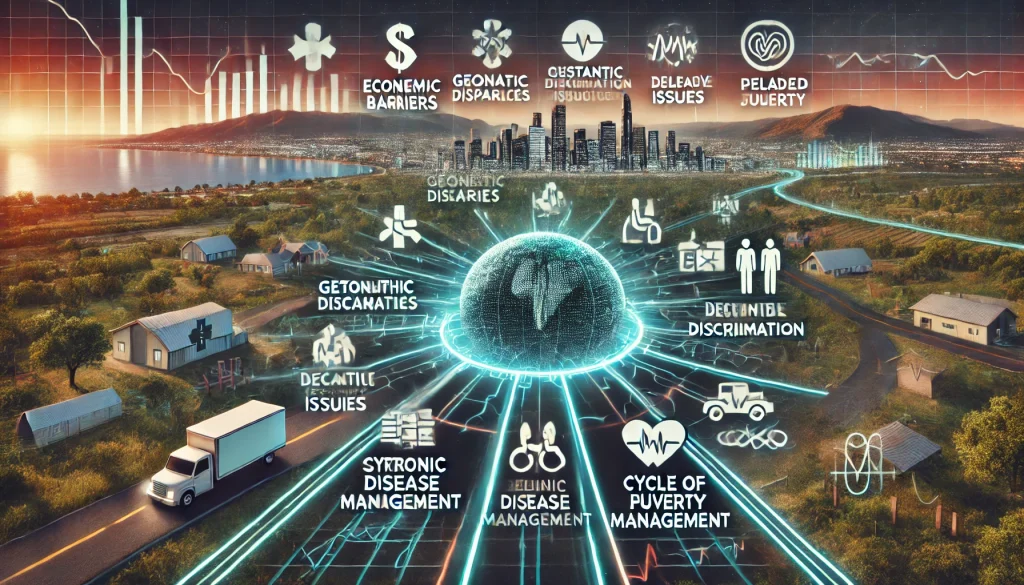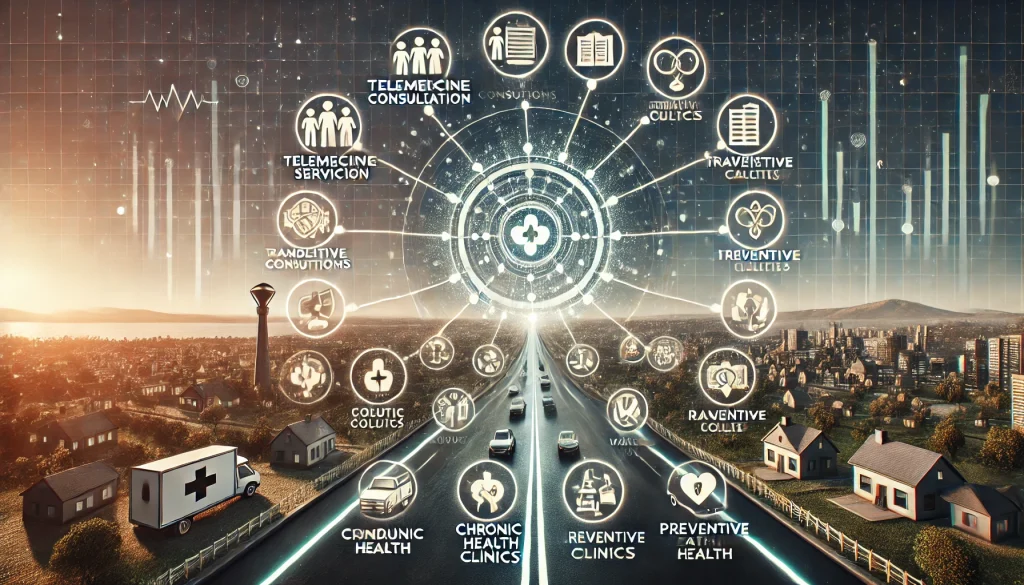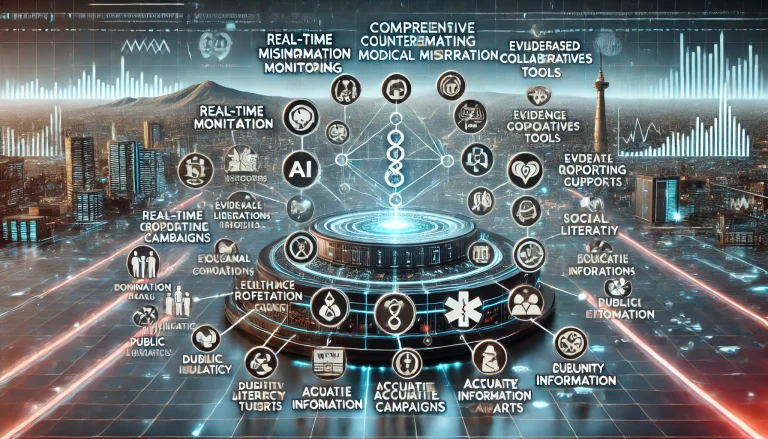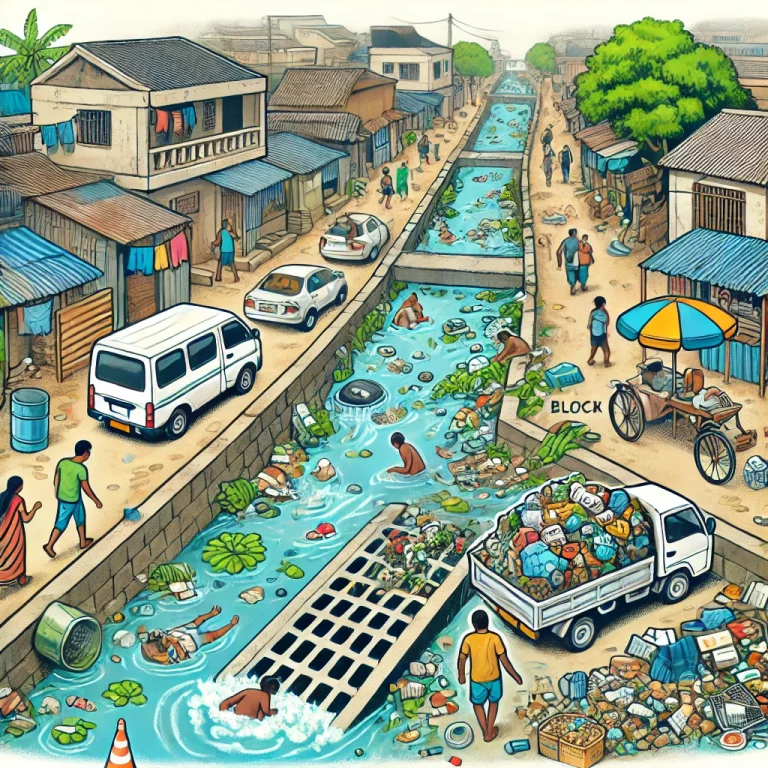Problem Statement
Inequitable access to healthcare remains a significant challenge worldwide, particularly in underserved communities. Despite advances in medical technology and services, many individuals still struggle to receive the care they need due to a combination of economic, geographic, and systemic barriers. These barriers include the high cost of healthcare, lack of insurance coverage, scarcity of healthcare facilities in rural or remote areas, and inadequate transportation options. Additionally, systemic issues such as discrimination, cultural and language differences, and lack of healthcare literacy further exacerbate the problem, making it difficult for vulnerable populations to navigate the healthcare system.
As a result, these communities often experience poor health outcomes, with higher rates of chronic diseases, untreated medical conditions, and preventable illnesses. The lack of timely and adequate medical care not only endangers lives but also perpetuates a cycle of poverty and illness. Individuals who are unable to access healthcare may be forced to take time off work, leading to lost income and increased financial strain. This, in turn, can make it even more difficult for them to afford medical care in the future, creating a vicious cycle of poor health and economic hardship.
Addressing inequitable access to healthcare requires a multifaceted approach that includes improving the availability and affordability of medical services, enhancing transportation and infrastructure in underserved areas, and implementing policies that promote inclusivity and reduce systemic barriers. Innovative solutions such as telemedicine, mobile health clinics, and community health programs can play a critical role in reaching these populations and ensuring that everyone has the opportunity to receive quality healthcare, regardless of their location or financial status.
Pain Points
- Economic Barriers: High cost of healthcare and lack of insurance coverage prevent access to medical services.
- Geographic Disparities: Scarcity of healthcare facilities in rural and remote areas limits access to care.
- Transportation Issues: Lack of reliable transportation options hinders access to healthcare facilities.
- Systemic Discrimination: Cultural, language, and systemic barriers prevent equitable access to healthcare.
- Healthcare Literacy: Low levels of healthcare literacy make it difficult for individuals to navigate the healthcare system.
- Delayed Treatment: Lack of timely access to medical care leads to worsening health conditions.
- Chronic Disease Management: Inadequate access to care results in higher rates of chronic diseases.
- Preventable Illnesses: Poor access to preventive services leads to higher rates of preventable illnesses.
- Cycle of Poverty: Health issues exacerbate financial strain, perpetuating a cycle of poverty and illness.
- Lack of Inclusive Policies: Insufficient policies to address and reduce healthcare disparities in vulnerable populations.

Future Vision
Our platform envisions a future where healthcare is accessible to everyone, regardless of their economic status, geographic location, or background. By leveraging innovative technologies and community-driven initiatives, the platform will provide comprehensive solutions to bridge the healthcare gap in underserved communities. Telemedicine and digital health tools will enable remote consultations and access to specialists, reducing the need for travel and overcoming geographic barriers. Mobile health clinics will bring medical services directly to remote and rural areas, ensuring that individuals can receive care without leaving their communities.
The platform will also focus on enhancing healthcare literacy through educational programs and resources, empowering individuals to make informed decisions about their health. Community health workers and local healthcare advocates will play a crucial role in providing culturally competent care and navigating systemic barriers, ensuring that all individuals feel understood and respected within the healthcare system. Additionally, the platform will advocate for policy changes that address systemic inequalities, promote inclusivity, and improve healthcare access for vulnerable populations.
Through partnerships with local organizations, governments, and healthcare providers, our platform will create a resilient and inclusive healthcare ecosystem that prioritizes equity and ensures that all individuals have the opportunity to achieve optimal health outcomes.
Use Cases
- Telemedicine Services: Providing remote consultations and access to specialists for underserved communities.
- Mobile Health Clinics: Deploying mobile clinics to deliver healthcare services in remote and rural areas.
- Healthcare Literacy Programs: Offering educational resources to improve understanding of healthcare systems and services.
- Community Health Workers: Training and deploying local health workers to provide culturally competent care.
- Transportation Solutions: Implementing transportation programs to facilitate access to healthcare facilities.
- Policy Advocacy: Promoting policy changes that address healthcare disparities and improve access.
- Chronic Disease Management: Providing support and resources for managing chronic conditions in underserved populations.
- Preventive Care Initiatives: Expanding access to preventive services to reduce the incidence of preventable illnesses.
- Inclusive Healthcare Practices: Ensuring that healthcare services are inclusive and respectful of all cultural backgrounds.
- Partnerships with Local Organizations: Collaborating with local entities to address specific healthcare needs and barriers.
Target Users and Stakeholders
- User: Community Health Workers, Healthcare Providers, and Policy Makers
- Age Group: 25-60 years
- Gender: M/F
- Usage Pattern: Regular usage for delivering healthcare services, managing health programs, and advocating for policy changes
- Benefit: Improved healthcare access, better health outcomes, and reduced healthcare disparities
- Stakeholders:
- Underserved Communities: Individuals and families with limited access to healthcare services
- Healthcare Providers: Clinics, hospitals, and health professionals offering care to underserved populations
- Government Agencies: Entities responsible for healthcare policy and regulation
- Non-Profit Organizations: Groups focused on improving healthcare access and equity
- Educational Institutions: Schools and universities providing healthcare literacy programs
Key Competition
- Zipline: Provides drone delivery services for medical supplies in remote areas.
- MediMobile: Offers mobile health clinics to underserved communities.
- Teledoc Health: Provides telemedicine services to connect patients with healthcare providers.
- Babylon Health: Uses AI and digital health tools to provide remote healthcare consultations.
- Cityblock Health: Focuses on providing healthcare services to low-income and underserved communities.
Products/Services
- Zipline Drone Delivery: Drone-based delivery of medical supplies to remote and rural areas.
- MediMobile Clinics: Mobile health clinics offering on-site medical services in underserved regions.
- Teledoc Health Services: Telemedicine platform providing remote access to healthcare providers.
- Babylon Digital Health: AI-driven healthcare consultations and digital health tools.
- Cityblock Health Services: Comprehensive healthcare services tailored for low-income communities.
Active Startups
- Medsien: Provides remote patient monitoring services to improve access to care.
- mPharma: Works on improving access to affordable medicines in Africa.
- CityHealth: Focuses on expanding access to healthcare services in urban underserved communities.
- ZiphyCare: Offers mobile healthcare services, bringing care directly to patients’ homes.
- Healthify: Connects underserved populations with social services and healthcare resources.
- CareMessage: Uses mobile technology to improve patient engagement in underserved populations.
- VSee: Offers telemedicine solutions tailored for remote and underserved areas.
- HealthConnect: Provides transportation solutions to help patients access healthcare services.
- Hikma Health: Delivers technology solutions to improve healthcare access in low-resource settings.
- Hesperian Health Guides: Offers educational resources and guides for community health workers in underserved areas.
Ongoing Work in Related Areas
- Telemedicine Expansion: Scaling telemedicine services to reach more underserved populations.
- Mobile Health Solutions: Developing and deploying mobile health units in rural and remote areas.
- Healthcare Infrastructure Development: Building and improving healthcare facilities in underserved communities.
- Community Health Initiatives: Empowering local health workers to deliver culturally competent care.
- Digital Health Literacy: Creating programs to improve understanding and use of digital health tools.
Recent Investment
- Zipline: $250M in Series E funding led by Baillie Gifford, June 2021.
- Medsien: $6M in Series A funding led by OCA Ventures, January 2021.
- mPharma: $17M in Series C funding led by CDC Group, December 2020.
- Cityblock Health: $192M in Series C funding led by General Catalyst, September 2020.
- Healthify: $16M in Series B funding led by Blue Venture Fund, March 2021.
Market Maturity
The market for solutions addressing inequitable access to healthcare is maturing rapidly, driven by the urgent need to improve healthcare outcomes in underserved communities. Established companies like Zipline, MediMobile, and Teledoc Health are leading the way with innovative solutions such as drone delivery, mobile clinics, and telemedicine platforms. At the same time, startups like Medsien, mPharma, and CityHealth are pushing the boundaries with novel approaches to remote patient monitoring, affordable medicine distribution, and healthcare accessibility in urban areas. Significant investments in digital health, mobile health solutions, and community health initiatives are transforming the healthcare landscape, enabling more inclusive and equitable access to care. As the market continues to evolve, we expect to see more integrated and advanced platforms that bridge the healthcare gap, ensuring that all individuals have access to the medical services they need, regardless of their circumstances.
Summary
Inequitable access to healthcare remains a significant challenge worldwide, particularly in underserved communities. Barriers such as economic hardship, geographic isolation, and systemic discrimination prevent many individuals from receiving the care they need, leading to poor health outcomes and perpetuating a cycle of poverty and illness. Our proposed platform leverages telemedicine, mobile health clinics, and community-driven initiatives to provide comprehensive solutions that bridge the healthcare gap in underserved areas. Key pain points include economic barriers, geographic disparities, transportation issues, systemic discrimination, healthcare literacy challenges, delayed treatment, chronic disease management, preventable illnesses, the cycle of poverty, and lack of inclusive policies.
Target users include community health workers, healthcare providers, and policymakers, with stakeholders encompassing underserved communities, healthcare providers, government agencies, non-profit organizations, and educational institutions. Key competitors like Zipline, MediMobile, Teledoc Health, Babylon Health, and Cityblock Health offer various solutions to improve healthcare access, while startups such as Medsien, mPharma, and CityHealth are driving innovation in this space. Recent investments highlight significant interest and growth potential in platforms addressing healthcare inequities.
By addressing these challenges and leveraging advanced technologies, our platform aims to create a resilient and inclusive healthcare ecosystem that ensures equitable access to medical services for all individuals, regardless of their economic status, geographic location, or background.



